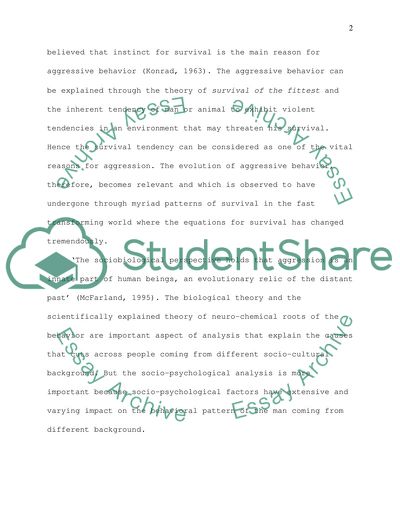Cite this document
(Theories for Aggressive Behavior Assignment Example | Topics and Well Written Essays - 1500 words, n.d.)
Theories for Aggressive Behavior Assignment Example | Topics and Well Written Essays - 1500 words. https://studentshare.org/psychology/1719333-a-look-at-aggression-and-how-it-relates-to-violence
Theories for Aggressive Behavior Assignment Example | Topics and Well Written Essays - 1500 words. https://studentshare.org/psychology/1719333-a-look-at-aggression-and-how-it-relates-to-violence
(Theories for Aggressive Behavior Assignment Example | Topics and Well Written Essays - 1500 Words)
Theories for Aggressive Behavior Assignment Example | Topics and Well Written Essays - 1500 Words. https://studentshare.org/psychology/1719333-a-look-at-aggression-and-how-it-relates-to-violence.
Theories for Aggressive Behavior Assignment Example | Topics and Well Written Essays - 1500 Words. https://studentshare.org/psychology/1719333-a-look-at-aggression-and-how-it-relates-to-violence.
“Theories for Aggressive Behavior Assignment Example | Topics and Well Written Essays - 1500 Words”. https://studentshare.org/psychology/1719333-a-look-at-aggression-and-how-it-relates-to-violence.


